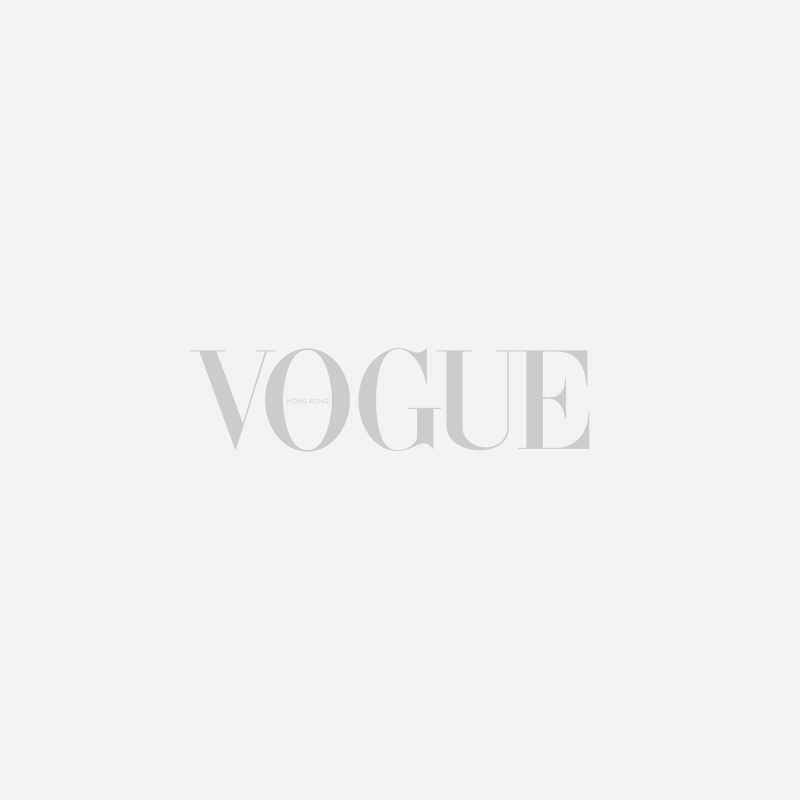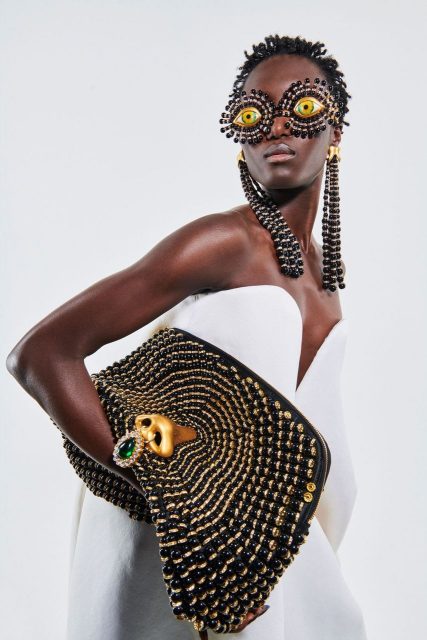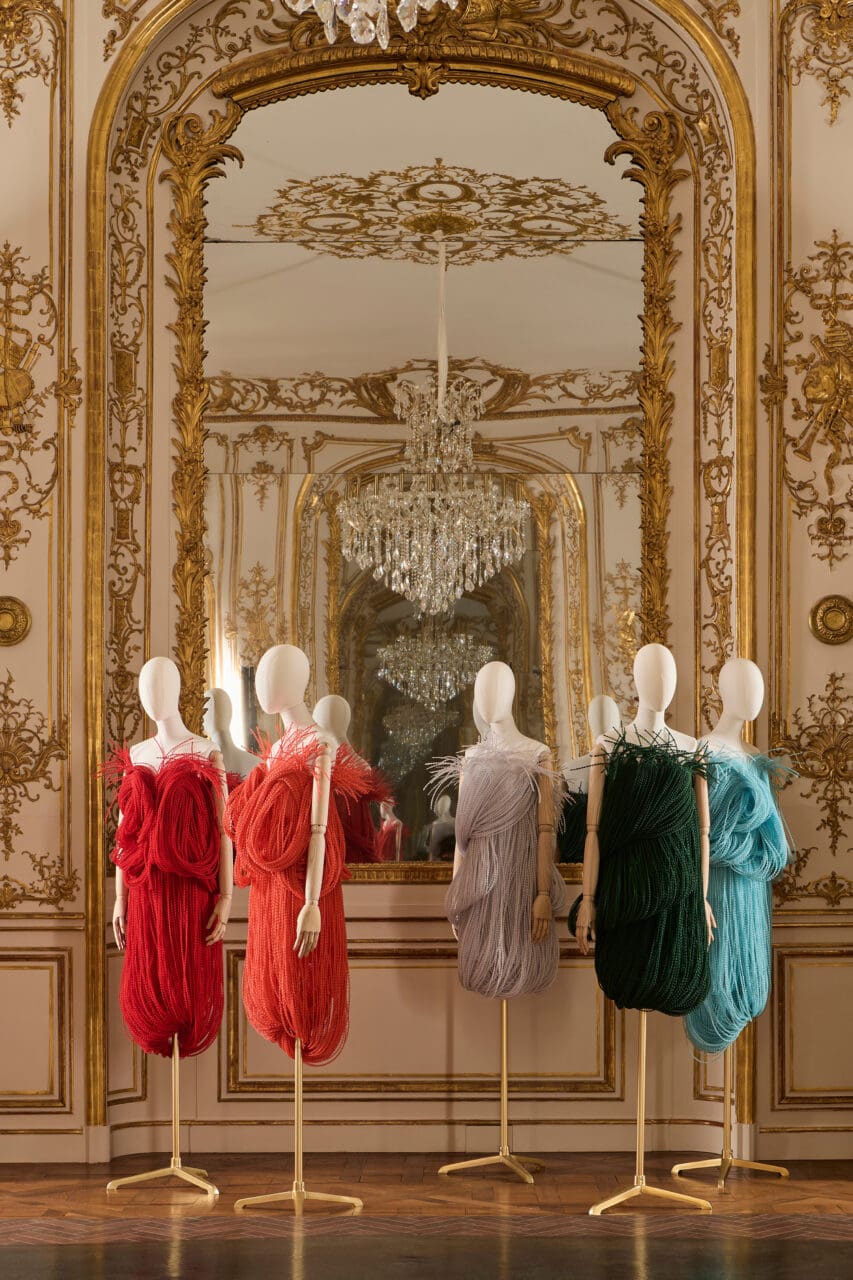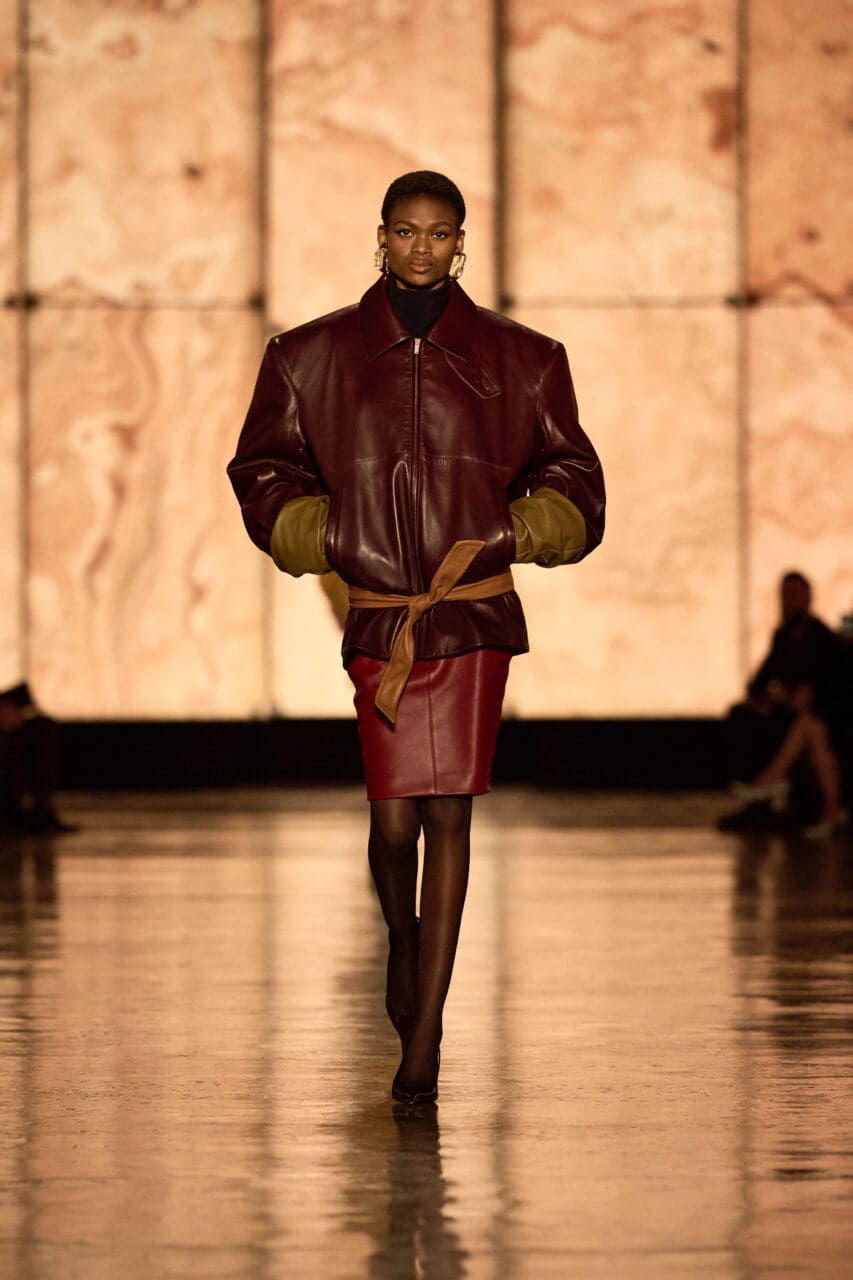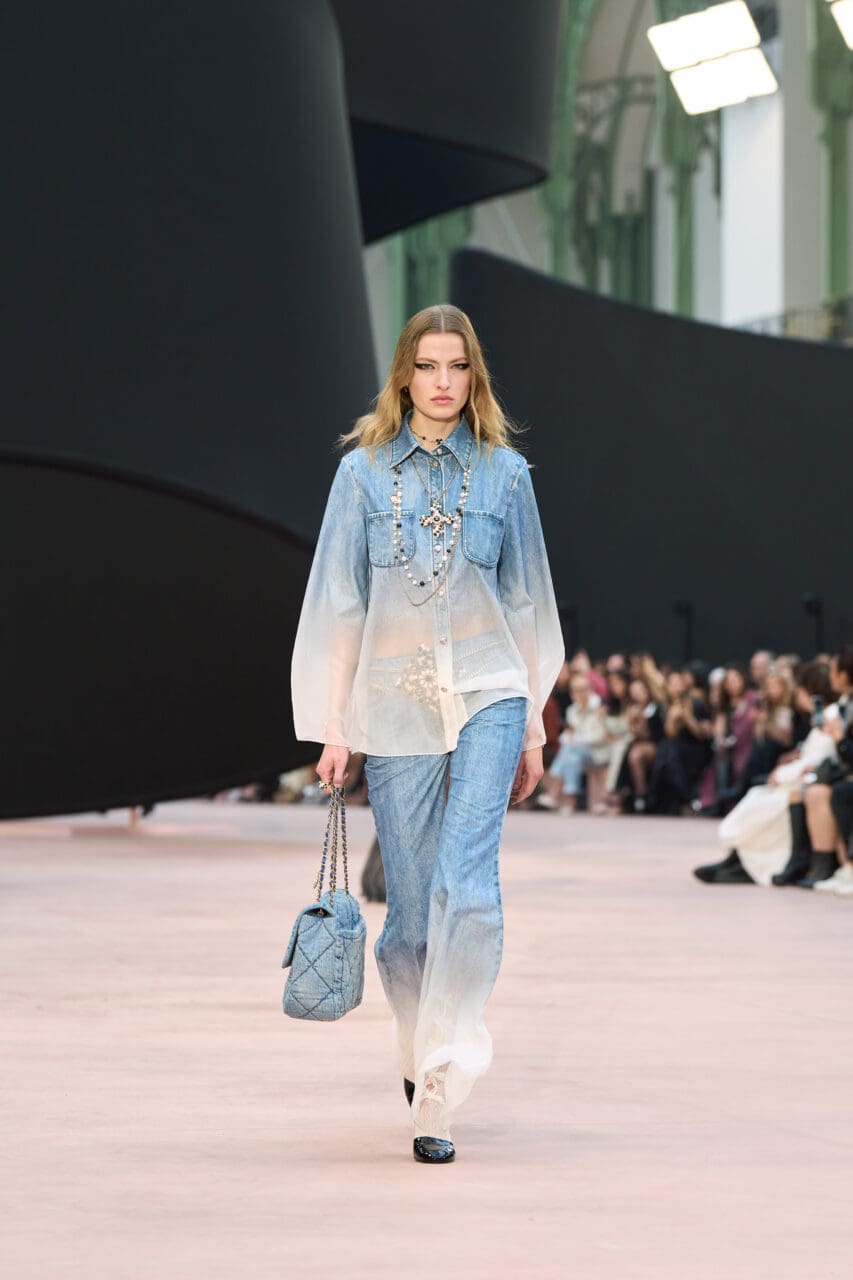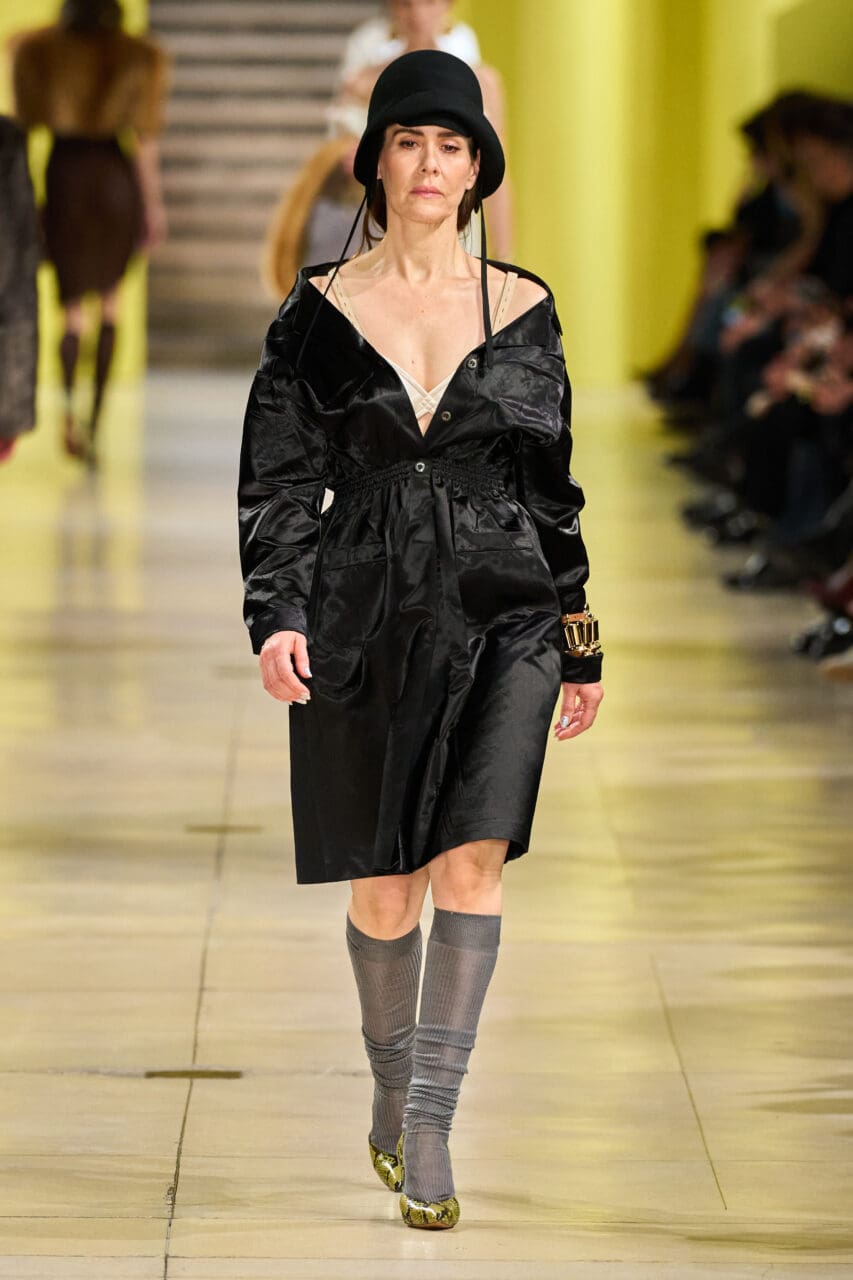When she began thinking about Chanel’s fall 2021 haute couture, Virginie Viard was struck by a series of photographs of the arch modernist Gabrielle “Coco” Chanel dressed in throwback 19th-century bustles and crinolines for some of the society costume balls that were all the rage in the 1930s. In that menacing era, these parties might have been a form of escapism, but as we now look to a post-pandemic future, and as Paris couture week unfurls in a flurry of dinners and in-person gatherings, Viard’s gentle romanticism suggests optimism instead.
In a preview in the Chanel studio on the Rue Cambon, Viard also spoke of two women artists, the acclaimed Impressionist Berthe Morisot, sister-in-law of Manet, and the Cubist Marie Laurencin, a key figure in the cultural landscape of Jazz Age Paris, whose delicately colored works include a portrait of the young Coco Chanel herself. In the haute couture, God is in the details—even the exquisite buttons mimic artist’s palettes or Monet nympheas, crafted from mosaics of tiny colored rhinestones, while feathered blossoms bloom under the stiff brims of Maison Michel felt hats.
These painterly inspirations came together in a collection characterized by a lightness of touch. Viard encouraged some truly remarkable work from the great embroidery houses of Paris, including Lesage, Cécile Henri, Atelier Emmanuelle Vernoux, and Atelier Montex, and the feather and flower designers Lemarié. These masters cleverly emulated an Impressionist’s bold, impasto paint strokes à la Van Gogh, or delicate pointillist dabs à la Seurat to create small works of art evoking gardens of rose blooms or fringes of dahlia petals. Lemarié’s incredible gardenia-strewn cardigan jacket (Look 21), crafted from feather strands, took 2,000 hours of expert handwork as Viard pointed out during a studio preview. But magnificent as these pieces are, they are as weightless as thistledown, embroidered on tulle and chiffon.
That airy spirit continues in the quirky way Viard marries bouffant skirts or even suits—made from “tweed” woven from narrow strands of multi-colored tulle and ribbon—with delicate bustiers of pale pink broderie anglaise or chalky lace, and lingerie-light chiffon and lace camisoles and bloomers that she aptly calls her “little deshabilles.”
Meanwhile, a trio of cream pantsuits, styled with boas of Schlaepfer’s tinsel sequins—and hairdresser Damien Boissinot’s plaited faux-hawks—hint at Viard’s rock chick edge. The bride, however, prettily personified by Margaret Qualley in a stately dress of soft pink satin, recalled the house’s pre-WWII era, worn as it was with a black pillbox hat accompanied by a veil scattered with clustered multi-colored sequins, based on one worn by Gabrielle Chanel herself in a 1930s pastel portrait sketch that now hangs in the Chanel studio.
As the girls lined up backstage in the galleries of the Palais Galliera fashion museum, currently hosting the remarkable exhibition Gabrielle Chanel: Fashion Manifesto, Viard’s clothes suddenly found themselves in dialog with Coco Chanel originals from the 1920s and ’30s, a garden of handcrafted beauty.
Editor
Hamish BowlesCredit
Lead image: courtesy of Gorunway